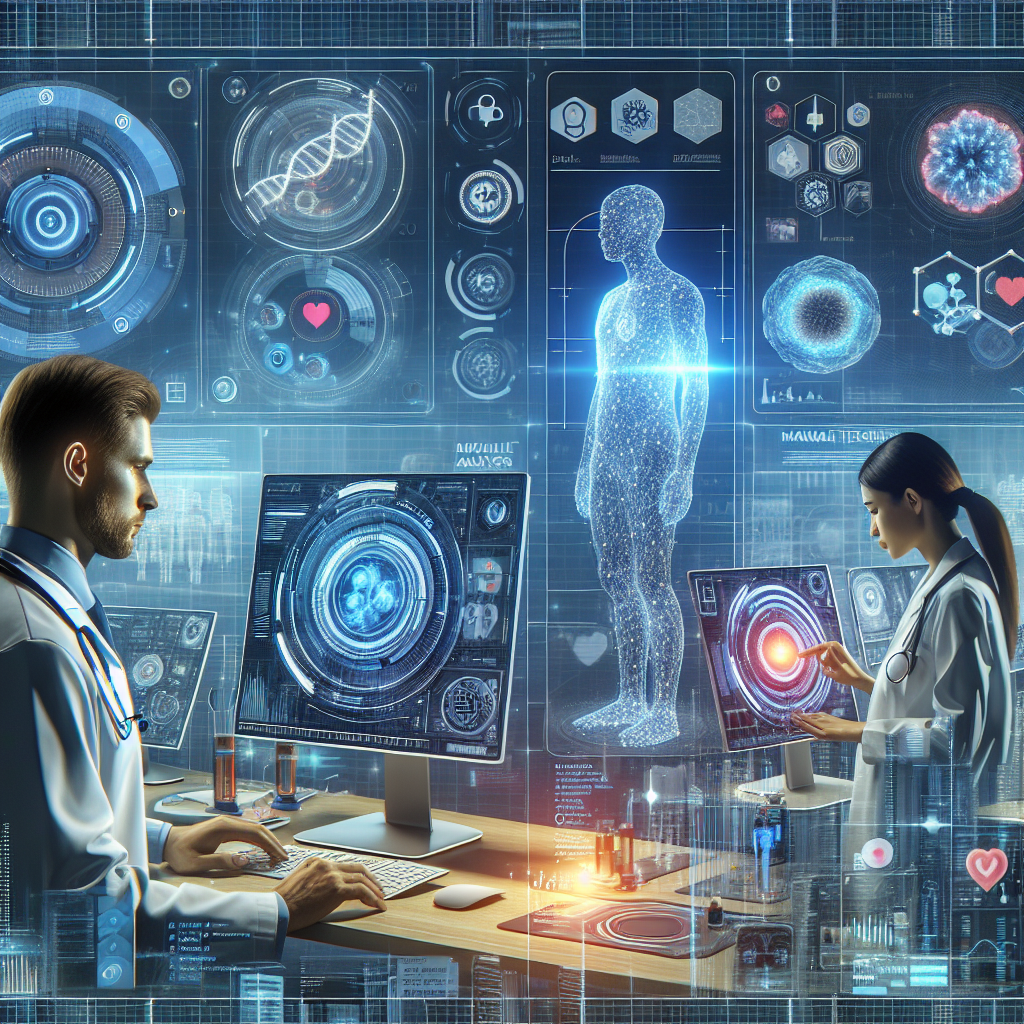Artificial intelligence (AI) has been making huge strides in healthcare in recent years, particularly in the areas of diagnostics and treatment. By leveraging data analysis and machine learning algorithms, AI has the potential to revolutionize the way healthcare is delivered, leading to more accurate diagnoses and personalized treatment plans for patients.
One of the key ways in which AI is enhancing diagnostics in healthcare is through the analysis of medical imaging data. Medical imaging, such as X-rays, MRIs, and CT scans, plays a crucial role in diagnosing a wide range of conditions, from broken bones to cancer. However, interpreting these images can be a time-consuming and error-prone process, as it requires a high level of expertise and experience.
AI-powered algorithms are now being developed to assist radiologists in analyzing medical images more efficiently and accurately. These algorithms can quickly scan through vast amounts of imaging data, flagging abnormalities that may be missed by human eyes. This can help radiologists make more timely and accurate diagnoses, leading to better outcomes for patients.
In addition to medical imaging, AI is also being used to analyze other types of healthcare data, such as electronic health records (EHRs) and genomic data. By mining these large datasets, AI algorithms can identify patterns and trends that may be overlooked by healthcare providers. This can help in predicting patient outcomes, identifying high-risk patients, and even discovering new treatments or interventions.
One area where AI is particularly promising is in the field of personalized medicine. By analyzing a patient’s genetic makeup, medical history, and lifestyle factors, AI algorithms can help healthcare providers tailor treatment plans to individual patients. This can lead to more effective and efficient treatments, as well as reduce the risk of adverse reactions or side effects.
Another way in which AI is enhancing healthcare is through the use of virtual health assistants. These AI-powered chatbots can interact with patients, answer their questions, and provide them with personalized healthcare advice. Virtual health assistants can also help patients manage chronic conditions, remind them to take their medications, and even schedule appointments with healthcare providers.
Despite the many advantages of AI in healthcare, there are also some challenges and concerns that need to be addressed. One of the main concerns is the issue of data privacy and security. Healthcare data is highly sensitive and confidential, and there is a risk that it could be misused or breached if not properly protected. Healthcare providers and AI developers need to ensure that robust security measures are in place to protect patient data.
Another challenge is the potential for bias in AI algorithms. AI systems are only as good as the data they are trained on, and if this data is biased or incomplete, it can lead to inaccurate or discriminatory results. Healthcare providers need to be aware of these biases and take steps to mitigate them, such as using diverse and representative datasets.
Overall, AI has the potential to revolutionize healthcare by enhancing diagnostics and treatment through data analysis and machine learning. By leveraging the power of AI, healthcare providers can make more accurate diagnoses, deliver personalized treatment plans, and improve patient outcomes. However, it is important to address the challenges and concerns associated with AI in healthcare to ensure that it is used ethically and responsibly.
FAQs:
1. How is AI being used in healthcare?
AI is being used in healthcare in a variety of ways, including analyzing medical imaging data, mining electronic health records, and developing personalized treatment plans for patients. AI-powered algorithms are helping healthcare providers make more accurate diagnoses, predict patient outcomes, and deliver personalized healthcare advice.
2. What are the benefits of AI in healthcare?
The benefits of AI in healthcare include more accurate diagnoses, personalized treatment plans, and improved patient outcomes. AI algorithms can analyze vast amounts of healthcare data quickly and efficiently, leading to better decision-making by healthcare providers. AI also has the potential to reduce healthcare costs, improve patient satisfaction, and enhance the overall quality of care.
3. What are the challenges of AI in healthcare?
Some of the challenges of AI in healthcare include data privacy and security concerns, potential bias in AI algorithms, and the need for healthcare providers to be trained in using AI technology. It is important for healthcare providers and AI developers to address these challenges to ensure that AI is used ethically and responsibly in healthcare.
4. How can healthcare providers ensure that AI is used ethically?
Healthcare providers can ensure that AI is used ethically by implementing robust security measures to protect patient data, addressing biases in AI algorithms, and providing training to healthcare staff on how to use AI technology. It is also important for healthcare providers to adhere to ethical guidelines and regulations when using AI in healthcare.
5. What is the future of AI in healthcare?
The future of AI in healthcare is bright, with continued advancements in data analysis, machine learning, and personalized medicine. AI has the potential to revolutionize the way healthcare is delivered, leading to more accurate diagnoses, personalized treatment plans, and improved patient outcomes. As AI technology continues to evolve, it will play an increasingly important role in shaping the future of healthcare.

